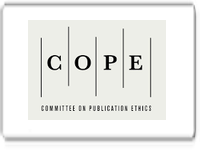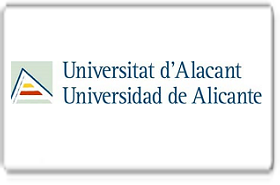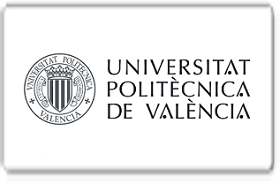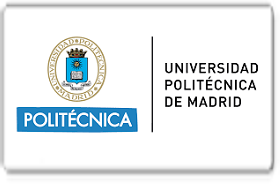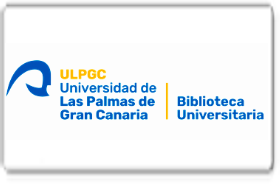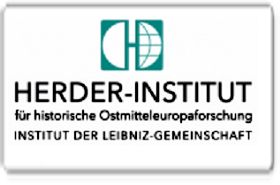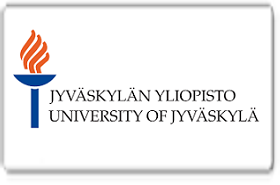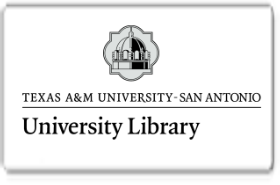Inhibición de PCSK9: una nueva alternativa para reducir el colesterol y prevenir la enfermedad cardiovascular aterosclerosa. Revisión sistemática
DOI:
https://doi.org/10.56048/MQR20225.8.4.2024.2347-2363Palabras clave:
Inhibidores de PCSK9; Reducción de LDL-C; Enfermedad cardiovascular; Meta-análisis; Prevención cardiovascularResumen
Introducción: La inhibición de convertasa de proproteína subtilisina/kexina tipo 9 (PCSK9) ha surgido como una prometedora alternativa en el manejo del colesterol y en la prevención de la enfermedad cardiovascular aterosclerosa (ASCVD), especialmente en pacientes con alto riesgo que no logran los niveles óptimos de lipoproteínas de baja densidad (LDL-C) con estatinas.
Objetivo: Evaluar la eficacia y seguridad de los inhibidores de PCSK9 (alirocumab, evolocumab e inclisiran) en la reducción de LDL-C y otros perfiles lipídicos en pacientes con riesgo de ASCVD, además de comparar sus efectos con ezetimibe, en pacientes con y sin terapia con estatinas.
Metodología: Siguiendo la metodología PRISMA, se realizó una búsqueda exhaustiva en bases de datos como PubMed, Embase y Cochrane, limitada a los últimos cinco años para asegurar la relevancia y actualidad de los estudios.
Resultados: Los inhibidores de PCSK9, particularmente evolocumab y alirocumab, mostraron reducciones significativas en LDL-C y la apolipoproteína B (ApoB), y beneficios adicionales en la reducción de eventos cardiovasculares mayores en pacientes de alto riesgo, especialmente en aquellos intolerantes a las estatinas. Comparados con ezetimibe, los inhibidores de PCSK9 lograron mayor reducción en LDL-C, y en combinación con estatinas, presentaron una mayor eficacia sin un aumento significativo de efectos adversos graves. Sin embargo, en términos de fibrilación auricular y eventos cerebrovasculares, los resultados fueron inconsistentes.
Conclusiones: La inhibición de PCSK9, tanto en monoterapia como combinada con estatinas, demuestra una significativa reducción de LDL-C y un perfil de seguridad favorable, posicionándose como una opción terapéutica relevante para la prevención de ASCVD.
Descargas
Métricas
Cited
DOI: 10.56048![]()
Citas
Benhuri, B., Ueyama, H., Takagi, H., Briasoulis, A., & Kuno, T. (2021). PCSK9 Inhibitors and ezetimibe monotherapy in patients not receiving statins: a meta-analysis of randomized trials. Current Vascular Pharmacology, 19(4), 390-397. https://doi.org/10.2174/1570161118666200807114559
Brandts, J., Dharmayat, K. I., Vallejo-Vaz, A. J., Sharabiani, M. T. A., Jones, R., Kastelein, J. J., ... & Ray, K. K. (2021). A meta-analysis of medications directed against PCSK9 in familial hypercholesterolemia. Atherosclerosis, 325, 46-56. https://doi.org/10.1016/j.atherosclerosis.2021.03.042
Choi, H. D., & Kim, J. H. (2023). An Updated Meta‐Analysis for Safety Evaluation of Alirocumab and Evolocumab as PCSK9 Inhibitors. Cardiovascular Therapeutics, 2023(1), 7362551. https://doi.org/10.1155/2023/7362551
Ference, B. A., et al. (2017). Effect of naturally random allocation to lower LDL-C on the risk of coronary heart disease mediated by PCSK9 variants. Journal of the American College of Cardiology, 70(11), 1433-1440.
Grundy, S. M., et al. (2018). 2018 AHA/ACC/AACVPR/AAPA/ABC/ACPM/ADA/AGS/APhA/ASPC/NLA/PCNA guideline on the management of blood cholesterol: A report of the American College of Cardiology/American Heart Association Task Force on Clinical Practice Guidelines. Journal of the American College of Cardiology, 73(24), e285-e350.
Khan, S. U., Yedlapati, S. H., Lone, A. N., Hao, Q., Guyatt, G., Delvaux, N., ... & Rodondi, N. (2022). PCSK9 inhibitors and ezetimibe with or without statin therapy for cardiovascular risk reduction: a systematic review and network meta-analysis. bmj, 377. https://doi.org/10.1136/bmj-2021-069116
Liu, D., Zhang, J., Zhang, X., Jiang, F., Wu, Y., Yang, B., ... & Wang, X. (2024). The efficacy and safety of proprotein convertase subtilisin/kexin type 9 (PCSK9) inhibitors combined with statins in patients with hypercholesterolemia: a network meta-analysis. Frontiers in Cardiovascular Medicine, 11, 1454918. https://doi.org/10.3389/fcvm.2024.1454918
Mu, G., Xiang, Q., Zhou, S., Liu, Z., Qi, L., Jiang, J., ... & Cui, Y. (2020). Efficacy and safety of PCSK9 monoclonal antibodies in patients at high cardiovascular risk: an updated systematic review and meta-analysis of 32 randomized controlled trials. Advances in therapy, 37, 1496-1521. https://doi.org/10.1007/s12325-020-01259-4
Sabatine, M. S., et al. (2015). Efficacy and safety of evolocumab in reducing lipids and cardiovascular events. New England Journal of Medicine, 372(16), 1500-1509.
Se realizó una revisión sistemática y meta-análisis de 14 ensayos con 52,586 pacientes de alto y muy alto riesgo cardiovascular. Los estudios compararon tratamientos con y sin inhibidores de PCSK9, extraídos de PubMed y Embase hasta el 1 de junio de 2021. https://doi.org/10.1155/2022/8729003
Stone, N. J., et al. (2014). 2013 ACC/AHA guideline on the treatment of blood cholesterol to reduce atherosclerotic cardiovascular risk in adults. Journal of the American College of Cardiology, 63(25 Part B), 2889-2934.
Talasaz, A. H., Ho, A. C., Bhatty, F., Koenig, R. A., Dixon, D. L., Baker, W. L., & Van Tassell, B. W. (2021). Meta‐analysis of clinical outcomes of PCSK9 modulators in patients with established ASCVD. Pharmacotherapy: The Journal of Human Pharmacology and Drug Therapy, 41(12), 1009-1023. https://doi.org/10.1002/phar.2635
Toth, P. P., Bray, S., Villa, G., Palagashvili, T., Sattar, N., Stroes, E. S., & Worth, G. M. (2022). Network Meta‐Analysis of Randomized Trials Evaluating the Comparative Efficacy of Lipid‐Lowering Therapies Added to Maximally Tolerated Statins for the Reduction of Low‐Density Lipoprotein Cholesterol. Journal of the American Heart Association, 11(18), e025551. https://www.ahajournals.org/doi/full/10.1161/JAHA.122.025551
Wilkins, E., et al. (2017). European cardiovascular disease statistics 2017 edition. European Heart Network.
Yang, S., Shen, W., Zhang, H. Z., Wang, C. X., Yang, P. P., & Wu, Q. H. (2023). Effect of PCSK9 Monoclonal antibody versus placebo/ezetimibe on atrial fibrillation in patients at high cardiovascular risk: a Meta-Analysis of 26 Randomized Controlled Trials. Cardiovascular Drugs and Therapy, 37(5), 927-940. https://doi.org/10.1007/s10557-022-07338-8
Yu, Z., Hu, L., Sun, C., Wang, Z., Zhang, X., Wu, M., & Liu, L. (2023). Effect of different types and dosages of proprotein convertase subtilisin/kexin type 9 inhibitors on lipoprotein (a) levels: a network meta-analysis. Journal of Cardiovascular Pharmacology, 81(6), 445-453. DOI: 10.1097/FJC.0000000000001419
Zhao, J., Tong, X., Peng, J., Lyu, C., & Lu, S. (2024). Efficacy and Safety of PSCK9 Inhibitors on Patients with Acute Coronary Syndrome: A Systematic Review and Meta-Analysis of Randomised Controlled Trials. Reviews in Cardiovascular Medicine, 25(3), 94. https://doi.org/10.31083/j.rcm2503094
Zhou, Q., et al. (2018). PCSK9 inhibitors: A novel therapeutic target for stroke and other cerebrovascular diseases. Journal of the American Heart Association, 7(17), e008953.
Publicado
Cómo citar
Número
Sección
Categorías
Licencia

Esta obra está bajo una licencia internacional Creative Commons Atribución 4.0.
Los autores se comprometen a respetar la información académica de otros autores, y a ceder los derechos de autor a la Revista MQRInvestigar, para que el artículo pueda ser editado, publicado y distribuido. El contenido de los artículos científicos y de las publicaciones que aparecen en la revista es responsabilidad exclusiva de sus autores. La distribución de los artículos publicados se realiza bajo una licencia 


















